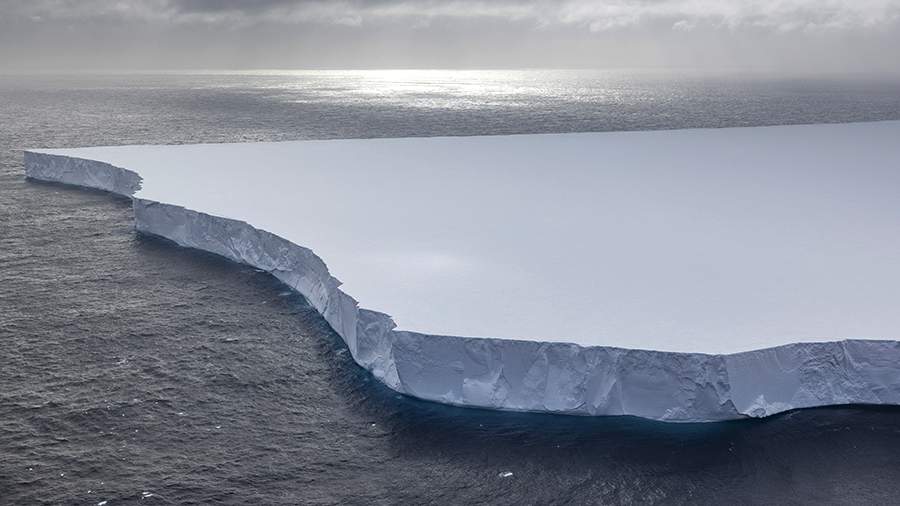Scientists have said there is a risk of the world's largest iceberg colliding with Britain
- Новости
- World
- Scientists have said there is a risk of the world's largest iceberg colliding with Britain

The world's largest iceberg, named A23a, is moving north from Antarctica to the island of South Georgia, part of the British Overseas Territories, and threatens to collide with it. This was reported by CNN on January 24.
As noted oceanographer of the British Antarctic Survey Andrew Meyers, before several months the ice giant with an area of 3500 square kilometers was in a "trap", revolving around an underwater mountain. It is noted that the iceberg is slightly smaller than the state of Rhode Island(USA) and more than twice the size of London. Scientists and fishermen have been closely monitoring its movements since it detached from the Filchner-Ronne ice shelf in West Antarctica in 1986.
"Icebergs are inherently dangerous. I would be extremely pleased if it didn't see us at all. We have searchlights on all night to try and see the ice - it can come out of nowhere," said Simon Wallace, captain of the South Georgia government vessel Pharos.
Experts do not rule out that the ice block could collide with part of the British landmass and break into pieces. According to the British Antarctic Survey's forecast, the iceberg is likely to split and eventually melt when it reaches the remote South Georgia island. This would have "potential impacts on wildlife" but would likely be "highly localized and temporary," the scientists said.
In October 2024, the Russian Geographical Society reported that the 53-hectare Mesyatseva Island disappeared from an archipelago in the Arctic as a result of global warming. The disappearance of the ice formation, which was recently a cape, was noticed by comparing old and new images of the Franz Josef Land archipelago taken by meteorological satellites. It was noted that the archipelago was monitored in 2020-2022, but now the island has finally melted, which requires correction of navigation charts. Mesyatseva Island was formed from the peninsula of the same name as a result of the melting of the glacier on the island of Eva-Liv until 1995.
Later, on November 2, Russian scientists said that the area of ice covers around the world is gradually decreasing, and as a result, some ice islands may disappear. They specified that now there is an interglacial period and it is not clear what temperature will be the norm in the next hundred years: perhaps warming will continue, and perhaps the climate on Earth will again rush to the ice age.
Переведено сервисом «Яндекс Переводчик»
